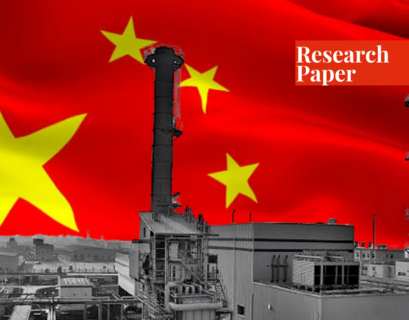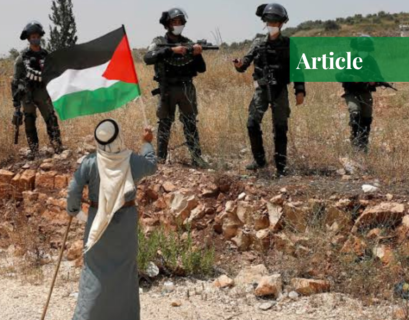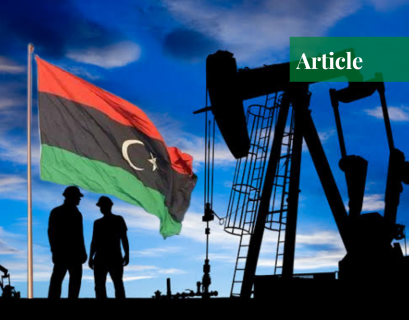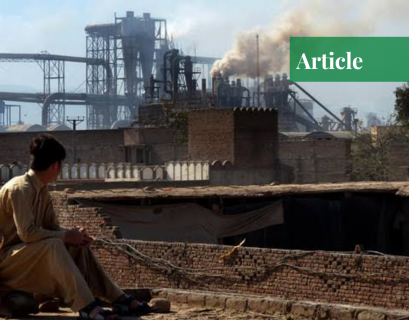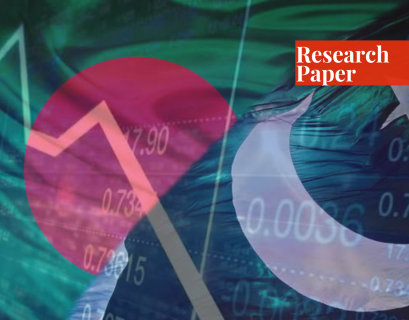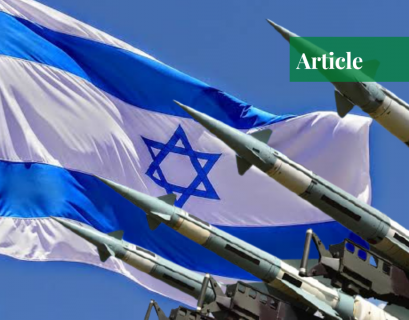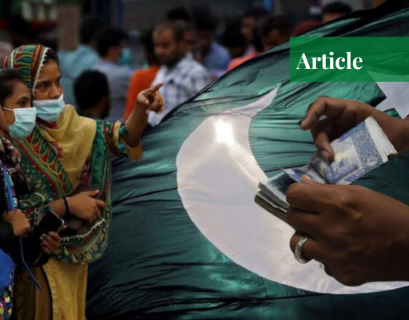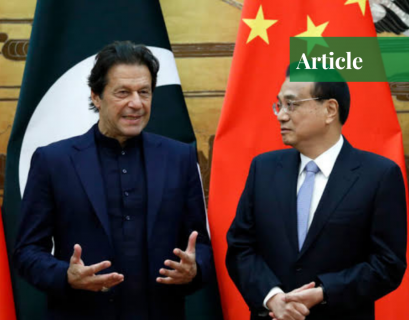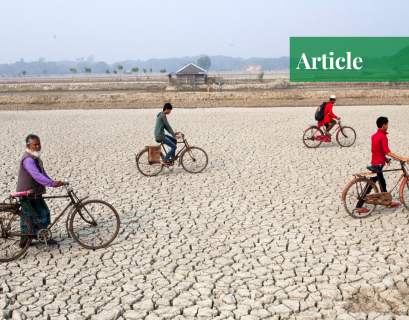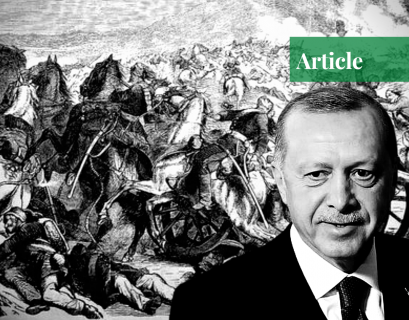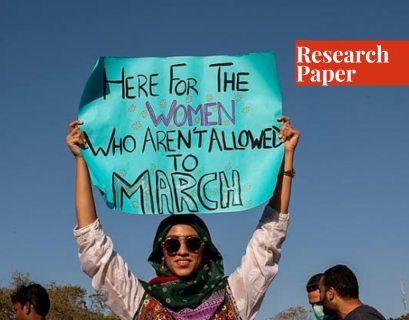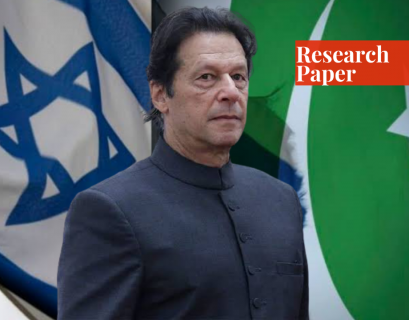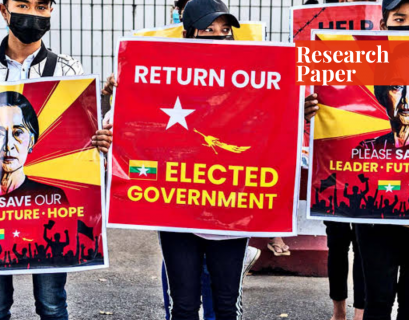How China Became an Economic Superpower?
China’s economic transformation in the last 40 years has had a huge impact on the global economy. This unprecedented economic scenario has attracted a lot of interest, particularly from developing countries looking to emulate China’s success. The author considers the infant industry model to explain China’s rapid industrialization and subsequent economic rise and explains how China’s long-term approach and facilitative policies have enabled local industries to become competitive worldwide. It also discusses what countries like Pakistan can learn from the Chinese experience with regards to strengthening their industrial base.
What is the BDS Movement Against Israel?
Palestinians and their supporters have realized that the most effective way of fighting against Israel is the Boycott, Divestment, and Sanction (BDS) movement.
By boycotting Israeli products and pushing for divestment and sanctions on Israel, the movement aims to exert international pressure on Israel, the world governments, and international institutions to dismantle Israel’s apartheid wall, ensure the rights of the Palestinians, end the colonization of Arab lands, and impose the UN Resolution 194.
Muhammad Hamza Tanvir explains that since the drive is a threat to Israel and its allies, the Western media has labelled the movement as “racist”. He further explains that supporting the movement will not only benefit Palestinians but also the people of the countries backing it.
United States’ Involvement in Libya: Another Case of Oil Interests
Due to its strategic location and vast oil reserves, Libya has attracted the attention of the world’s major powers. For these states, Libya’s war-torn condition is irrelevant and only their national interests matter. The author, Ayesha Zafar, notes that since the US’s interests are linked to oil in Libya, it continuously exploits the state by not only making use of the capitalist economic order but also by supporting opposing factions—the Haftar group and the Government of National Accord (GNA)—simultaneously, within Libya. Moreover, to influence the state, the US and the major powers impose the capitalist ideology on it through policies introduced by international economic institutions like the World Bank and the IMF.
Cost Audit: A Tool for Boosting Efficiency and Tackling Unjust Price Hikes
In the face of global market competition, Pakistan’s industries need to effectively utilize the factors of production. The degree of competitiveness in the state’s domestic and international market determines the survival of its industries and economy. Noting this, Adil Abbasi, a member of the Institute of Cost and Management Accountants (ICMA), asserts that cost auditing across the industries of Pakistan will aid in meeting the challenges of market competition. He explains that while cost auditing is implemented in Pakistan, it is only limited to a few industries and thus, the state cannot fully benefit from it.
Political and Economic Growth of Pakistan Vis-à-vis Bangladesh
The economic and political growth of Pakistan and Bangladesh after 1971 can be seen as a reflection of their political culture. The author, Hurain Sheikh, explains that the political culture of Pakistan and Bangladesh is not new to elitism, nepotism, and corruption. She notes that while both states have a history of political instability, the economy of Bangladesh has flourished as compared to Pakistan. Keeping in mind how Bangladesh has managed to lower its unemployment and poverty rate, and improved its economy, she suggests a few measures to help Pakistan develop.
A JCPOA for the Growing Israeli Nuclear Weapons Program
Israel is a nation involved in uranium enrichment programs – just like Iran. While these programs are not acknowledged by the Israeli government, expert opinions confirming these statements are available. The author argues for a framework (like the Joint Comprehensive Plan of Action i.e. the Iran nuclear deal) for Israel’s quietly escalating nuclear projects.
The Current Situation of Pakistan’s Economy in Light of Covid-19
Pakistan’s fluctuating economy has witnessed an alarming downturn after the brutal second wave of Covid-19. The poverty rate was predicted to increase to a whopping 58.6% (from the pre-Covid 23.4%) in the case of a high impact scenario. With a third wave currently gripping the state, the author believes that the government’s policies can either improve the economic situation of the country – or make it much worse.
The 2008 Gaza Massacre: Israel’s Previous Incursion
This is a review of a study on the ‘Gaza Massacre’ which was launched by Israel in 2008 – where they killed over 1400 Palestinians. The study uses the Just-War Theory to delineate how Israel acted immorally and illegally during this operation – and many times in the past. Many human rights violations of the Palestinians were cited by international overseers, where they noted the cruelty of the Israeli forces.
Are CPEC and East India Company Different?
Over the years, the people of Pakistan have expressed their growing concern over the China-Pakistan Economic Corridor (CPEC). It has become a common misconception in Pakistan that CPEC is just another modern-day East India Company. The author, Ayesha Zafar, compares the two and argues that the objectives of CPEC and the circumstances under which China set foot in Pakistan are different from that of the East India Company. She notes that while the East India Company was imperialist in nature and only benefitted the British Empire, CPEC profits both China and Pakistan. Instead of exploiting Pakistan, it is aiding in infrastructural development, energy production, and alleviating unemployment in Pakistan.
Israeli Attacks on Palestinians: A Third Intifada?
The author considers the violence against Palestinians to be a threat to international human rights, as Israeli attacks on Palestinians have continued since last Friday, shaking Jerusalem and its inhabitants. Indiscriminate violence by Israeli forces mounted after protests by Palestinians against the forceful eviction and occupation of Palestinian land. The attacks inside Al-Aqsa mosque – a place held sacred by both Muslims and Jews – have sparked outrage and calls for condemnation of the Israeli forces.
How Climate Change in Pakistan Affects Migration
Migration induced by climate change is not a new phenomenon. Pakistan’s climate-induced migration is mainly linked to the natural disasters and extreme weather which cause the state to experience unseasonal rains, floods, and droughts. Due to these conditions, people are forced to migrate to cities in search of food, shelter and jobs. The author, Omair Farooq Khan, notes that climate change has aggravated Pakistan’s water crisis, and any change in Pakistan’s water resources will be destructive for the agriculture sector. Keeping in mind that the 2009-2010 floods displaced more than 2 million people in Pakistan, he recommends ways for Pakistan to tackle extreme weather conditions.
Turkey: Atatürk’s Secularism vs Erdoğan’s Islamization
Turkey’s foundation as a secular state, as set by its founding father Kemal Ataturk, now clashes with the incumbent President Erdogan’s vision of Islamization. The author uses several examples to showcase how Turkey is now being redirected to its imperial glory – to when Islam was the linchpin of the Ottoman Empire.
The Media and Aurat March: Friends or Foes?
On March 8, 2021, hundreds of people in Pakistan’s major cities took to the streets to highlight atrocities against women. This was part of the women’s rights campaign’s biggest mobilization in the country, the Aurat March.
The march took place for the 4th year in a row and was met with controversy yet again. This study explores the media’s role in the movement, and more essentially how the print and digital media covered and portrayed this year’s march.
The author analyses the portrayal on the basis of five themes: women’s rights, feminism, healthcare for women, violence and harassment, and patriarchy — with the background being the Agenda Setting Theory.
Should Pakistan Recognize Israel?
In the wake of the recent normalization of ties between varying Muslim states and Israel, Pakistan was rumored to be following suit. This stirred a debate within Pakistan – with people questioning the pro-Palestinian stance, and the rejection of Israel. The author discusses how Pakistan should continue to maintain the traditional policy towards Israel, and how it would be inadvisable to pursue normalization for limited gains.
Conflict Resolution: Ending the Rohingya Crisis
The paper discusses the inequities that have continued to exist within Myanmar’s infrastructure since the colonial era. The unrestrained hostility among Myanmar’s ethnicities has caused one of the world’s largest refugee crises. The author presents methods of conflict resolution that may prove effective in resolving the Rohingya conflict.
Rising Covid Cases in India: A Nation on Its Knees
The second wave of COVID-19 is causing India’s health sector to come apart at the seams – resulting in more than 3000 deaths every day. Prime Minister Modi’s government is being heavily criticized (locally and internationally) for the carelessness in controlling the virus. The author suggests the adoption of more liberal policies, and the abandonment of the Hindutva ideology – which may help in undoing the many wrongs.
